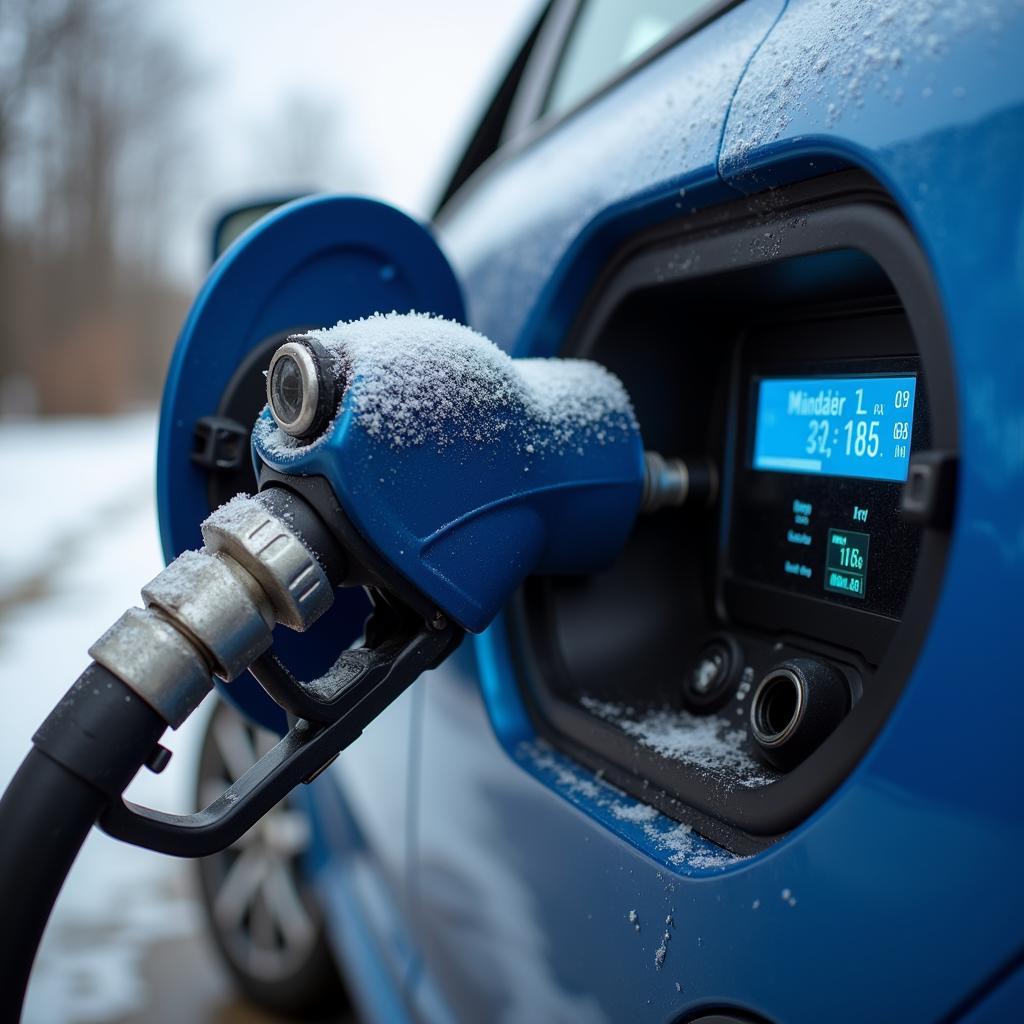Fuel cell cars offer a promising alternative to traditional gasoline vehicles, but hydrogen fueling problems remain a significant hurdle. This article delves into the challenges surrounding hydrogen fueling for fuel cell electric vehicles (FCEVs) and explores potential solutions for a smoother, more efficient fueling experience.
One of the primary obstacles facing fuel cell car adoption is the scarcity of hydrogen fueling stations. Unlike ubiquitous gas stations, hydrogen stations are few and far between, limiting the practicality of FCEVs for long-distance travel. This limited infrastructure creates “range anxiety,” a concern shared by many prospective FCEV owners. What happens if you run out of hydrogen miles from a fueling station? This is a valid concern that needs addressing. top 12 most common car problems and issues can sometimes pale in comparison to the fear of being stranded with no fuel source.
The High Cost of Hydrogen
The cost of hydrogen itself presents another challenge. Currently, hydrogen production is relatively expensive, making it less competitive than gasoline or even electricity for battery electric vehicles. Furthermore, the specialized equipment required for hydrogen storage and dispensing adds to the overall cost, impacting both the consumer and the station operator.
Technical Challenges in Hydrogen Fueling
Beyond availability and cost, technical issues also complicate hydrogen fueling. The high pressure required for hydrogen storage and the unique properties of hydrogen gas demand specialized equipment and safety protocols. Leaks, slow fueling times, and the need for precise temperature control can all contribute to a less-than-ideal fueling experience.
 Hydrogen Fueling Process Complications: Leaks, Slow Filling, Temperature Control
Hydrogen Fueling Process Complications: Leaks, Slow Filling, Temperature Control
Addressing the Hydrogen Fueling Problem
The future of fuel cell cars hinges on overcoming these fueling challenges. Investing in and expanding the hydrogen fueling infrastructure is crucial. Government incentives and private sector partnerships can play a significant role in accelerating the development of a more robust hydrogen highway.
Exploring Solutions for Faster and More Efficient Fueling
Technological advancements are also key. Researchers are exploring innovative hydrogen production methods, including electrolysis powered by renewable energy sources, to reduce costs and environmental impact. Improving storage technologies and streamlining the fueling process can also enhance the overall user experience. Imagine a future where filling a hydrogen tank is as quick and easy as filling a gas tank. That’s the goal.
“The key to widespread FCEV adoption lies in making hydrogen fueling as convenient and affordable as gasoline,” says Dr. Emily Carter, a leading expert in fuel cell technology. “We need to address the infrastructure gap, improve efficiency, and ensure safety to unlock the full potential of this promising technology.”
Another expert, Mr. John Davis, a veteran automotive engineer, adds, “Investing in hydrogen fueling infrastructure isn’t just about building more stations; it’s about creating a seamless and reliable fueling experience for consumers.” This emphasizes the importance of user experience in driving adoption. car suspension problems sound can be diagnosed, but hydrogen fueling problems need infrastructure solutions.
Conclusion
Fuel Cell Cars Hydrogen Fueling Problems remain a challenge, but not an insurmountable one. Addressing the infrastructure limitations, reducing costs, and improving fueling technology are crucial steps towards making FCEVs a viable option for the mass market. types of car test to fix problems at dealers are common, but fuel cell car testing and advancements will be vital. The future of sustainable transportation may well depend on it. pizza delivery car problems highlight the importance of reliable vehicles, and FCEVs need to meet that same standard. car hose problems can lead to breakdowns, highlighting the need for reliable hydrogen delivery systems in FCEVs. For any inquiries or assistance related to automotive issues, feel free to connect with us at AutoTipPro. Our phone number is +1 (641) 206-8880 and our office is located at 500 N St Mary’s St, San Antonio, TX 78205, United States.




Leave a Reply